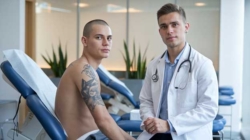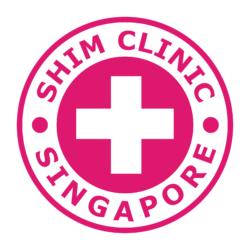Treatment resistant depression is a known phenomenon, yet the medical community has not agreed upon a formal set of diagnostic criteria to define this term. The phenomenon – Treatment Resistant Depression – is problematic. For starters, no generally accepted treatment option for depression is guaranteed effective. There is no panacea, elixir, or cure-all for all forms of depression, let alone major depressive disorder. Antibiotics may well be highly effective for bacterial infections, but the same cannot be said of treatment options for major depressive disorder.
With severe forms of depressive disorders, patients present with deep-seated psychological problems, which often manifest in physiological complications. The treatment options for these patients involve a combination of psychological and pharmacological treatments. Clinical depression is a dire mental health disorder. It is characterized by a pervasive sense of despair and hopelessness. Major depressive disorder (MDD) makes it impossibly difficult to perform daily activities with any degree of competence, regularity, or enthusiasm.
With clinical depression, a.k.a. major depression, interpersonal relationships are strained, and general health and wellness is suboptimal. For some people, a major depressive disorder may occur just once-in-a-lifetime, but for many others it is a frequent occurrence. Contrary to popular belief, it can affect people with no familial history of MDD, yet it can also run in families. Clinical depression is characterised by feelings of worthlessness, despair, and sadness for most of the day, particularly during daylight hours. If these feelings persist for 2 weeks + (DSM5), a medical evaluation and treatment options are strongly recommended.
What Are the Symptoms of Major Depressive Disorder?
Doom and gloom are tell-tale signs of a depressive disorder, but MDD goes above and beyond. Clinical depression is a persistent, nagging, depressed mood which often manifests in a host of other physiological complications, making it difficult if not impossible to function normally from day-to-day. The symptoms of MDD include the following:
• Inability to concentrate
• Hypersomnia or insomnia on a daily basis
• A sense of heaviness, apathy, or lack of motivation
• Lethargy, fatigue, tiredness, and absolutely no energy
• No pleasure derived from activities that are typically fun
• Extreme weight fluctuations (either weight gain or weight loss)
• Persistent feelings of worthlessness, often accompanied by suicidal thoughts
The National Institute of Mental Health (NIMH) estimates that approximately 7.1% of the US population aged 18+ are affected by major depression. Unfortunately, many people go undiagnosed with MDD, preferring to reject treatment and deal with the problems on their own. The treatments that are currently available for MDD are proving to be highly effective at managing this mental health disorder, and actually reversing the ill effects of depression over the long term.
As indicated, psychotherapy, medication, and alternative regimens such as Deep TMS are now readily available for combating this scourge. Medications typically involve SNRIs and SSRIs, and psychotherapy involves sessions with licensed mental health counselors, where ERT (exposure and response therapy) treatments can prove effective. For patients who do not respond well to medication and therapy, other surgical and nonsurgical procedures may be considered.
Treatment Options for Dealing with Major Depressive Disorder
Treatment-resistant depression is difficult to deal with on a number of levels. Given the severity of the mental health condition, radical steps may be required to safeguard the health and wellness of the patient, and those around the patient. With treatment-resistant MDD, it is unlikely that psychotherapy (psychological counseling), or antidepressant (SNRI or SSRI) medication will help. These are deemed standard treatment options, and they can prove ineffectual with severe forms of this disorder. The litmus test for treatment resistant-depression is little or no change in depressive symptoms after being placed onto a standard depression treatment protocol.
Generally, psychiatrists or licensed mental health counselors will assess the mental health and wellness of the patient given the specific treatment options provided. A thorough review of the patient’s medical history will be conducted to ascertain the extent of the disorder, and how best to tackle it. Standard medical history assessments involve the following:
• Patient response to medical treatments
• Environmental elements that may be contributing to MDD
• Discussions of existing health conditions since they may exacerbate depression, including heart problems, chronic pain, or thyroid disorders.
• Analysis of how patient is responding to medication, sticking to medication regimen, and adverse reactions to medication, et al.
After an extensive workup has been conducted, the mental health professional can implement a series of treatment options. These include an FDA-cleared treatment regimen known as Deep TMS. Otherwise known as Deep Transcranial Magnetic Stimulation, Deep TMS is highly effective and well-tolerated. The only side-effects that patients may experience include mild headaches, or ringing in the ears if proper protections aren’t worn. Fortunately, there are no long-lasting side-effects.
The variety of TMS treatments needs to be assessed according to the quality of the treatment centers and machinery used. There is no one size fits all blanket approach to adopt, since certain treatments are much more effective than others. In terms of MDD treatment, the most efficacious TMS treatments offer a success rate of 50% + which is significant given the resistance to standard treatment protocols.
Unliked traditional TMS, Deep TMS involves a specialized helmet – ergonomically designed with high-tech components. This helmet is worn for 20 minute sessions, and the patient is allowed to read, relax, or use a smartphone while the treatments are taking place. The patient typically undergoes treatment 5 days a week for up to 6 weeks, depending on the severity of the condition. Such is the efficacy of Deep TMS that it offers patients a real opportunity at remission.
Transcranial magnetic stimulation is far and away the preferred option for many forms of treatment-resistant depression, and it is a non-surgical alternative to ECT and other more invasive procedures. The patient is fully awake during the 20 minute sessions, with no sedatives, anesthesia, or incisions necessary. It is a painless treatment option with statistically significant positive results.





